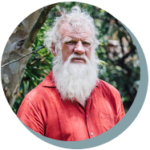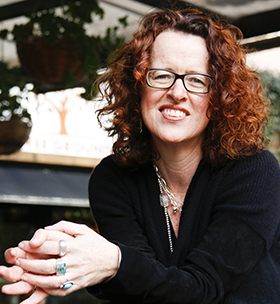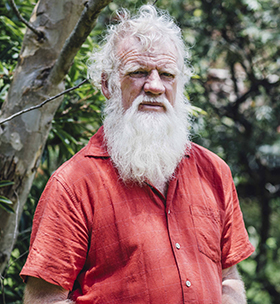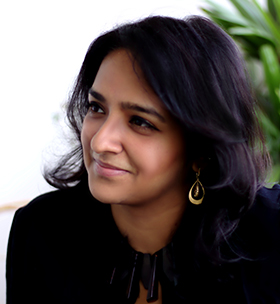Genevieve Bell
Going to Scale: Lessons from the Pandemic
The pandemic has disrupted everything from the global flow of goods and services, to the actions that individuals can take in their daily lives. It has changed, for now at least, the ecosystems in which we work—impacting both how we think about ethnographic activity and how it is might be used. In Australia, the pandemic has resulted in a collection of massive, unplanned, social experiments in scale, at scale. Examining five of these social experiments as they’ve played out, Genevieve will extract lessons that seem relevant to the work we all do now and to the ways we might want to orient to the future. After all, as the pandemic is demonstrating, scale is neither a stable nor singular concept, and our responses to it will need to be appropriately located and considered.
About Genevieve Bell
 Genevieve Bell is a Distinguished Professor, Director of the 3A Institute (3Ai) and Florence Violet McKenzie Chair at the Australian National University. She is also Vice President and a Senior Fellow at Intel Corporation. Genevieve joined the ANU in 2017, after having spent 18 years in Silicon Valley helping guide Intel’s product development and social science and design research capabilities.
Genevieve Bell is a Distinguished Professor, Director of the 3A Institute (3Ai) and Florence Violet McKenzie Chair at the Australian National University. She is also Vice President and a Senior Fellow at Intel Corporation. Genevieve joined the ANU in 2017, after having spent 18 years in Silicon Valley helping guide Intel’s product development and social science and design research capabilities.
In 2017, Genevieve was appointed the inaugural director of the 3A Institute, co-founded by the ANU and CSIRO’s Data61. The Institute’s mission is to establish a new branch of engineering to responsibly and sustainably scale AI-enabled cyber-physical systems.
Genevieve completed her PhD in cultural anthropology at Stanford University in 1998. She is best known for her work at the intersection of cultural practice and technology development and as an influential voice within academia, industry and government.
She is a Non-Executive Director of the Commonwealth Bank of Australia Board, member of the Prime Minister’s National Science and Technology Council, Fellow of the Australian Academy of Technology and Engineering (ATSE) and presented the highly acclaimed ABC Boyer Lectures for 2017. In 2020, Genevieve was appointed an Officer of the Order of Australia and the first Engelbart Distinguished Fellow at SRI International.
Bruce Pascoe
Caring
In this keynote address, we join indigenous writer, historian and agriculturalist Bruce Pascoe on his farm on the South East coast of Australia. Bruce employs the theme of Caring to speak to a range of topics close to his heart. While walking on Country with him, we are taken to a ceremonial site on his land that illustrates the importance of cultural heritage, reconciliation, and language to contemporary farming practices in Australia. We visit a forest landscape devastated by the ‘superfires’ experienced over Australia’s 2019/2020 summer, where we learn of the importance of indigenous approaches to land management and controlled burning. Introducing us to some of the nutritious plants and vegetables that indigenous people cultivated in pre-colonial Australia, Bruce talks us through his farming team’s current experiments and future plans to develop indigenous agriculture on a commercial scale on the farm, and he foregrounds the importance of training a new generation of indigenous farmers, chefs, botanists, and food scientists for an ethical and sustainable Australian food future.
About Bruce Pascoe
 A celebrated writer and thinker, Tasmanian and Yuin man Bruce Pascoe is the author of many acclaimed books and short story collections as well as novels for young adults. Dark Emu (2014), Bruce’s history of Aboriginal agriculture, won the prestigious NSW Premier’s Book of the Year in 2016. A Board member of First Languages Australia and Past Secretary of Bidwell-Maap Aboriginal Nation, Bruce received the Australia Council’s lifetime Achievement Award for Literature in 2018.
A celebrated writer and thinker, Tasmanian and Yuin man Bruce Pascoe is the author of many acclaimed books and short story collections as well as novels for young adults. Dark Emu (2014), Bruce’s history of Aboriginal agriculture, won the prestigious NSW Premier’s Book of the Year in 2016. A Board member of First Languages Australia and Past Secretary of Bidwell-Maap Aboriginal Nation, Bruce received the Australia Council’s lifetime Achievement Award for Literature in 2018.
Bruce has won numerous other writing awards including the Australian Literature Award (for Shark); the Prime Minister’s Award for Literature (Fox a dox, Young Adult Fiction, 2013); and the 2013 Prime Minister’s Award for Fog a dox, which was also shortlisted for the WA Premier’s Award and the Deadlies Award.
Other books include: Night Animals, Chainsaw File, Fox, Ruby Eyed Coucal, Ocean, Earth, Bloke, Cape Otway,Convincing Ground, Little Red Yellow and Black Book, Sea Horse and Mrs Whitlam.
Bruce lives, writes and farms on coastal Yuin country near Mallacoota in Far North East Victoria and has two children and four grandchildren. Alongside his writing career, Bruce has been a teacher, farmer, fisherman, barman, fencing contractor, lecturer, Aboriginal language researcher, archaeological site worker and editor, and most recently a fire fighter. He has also played 520 games of ordinary suburban and country football and is still playing ordinary A grade cricket.
Ashwini Asokan
Noise vs Signal: Decoding the Business of AI
Details coming soon!
About Ashwini Asokan
 Ashwini Asokan is the CEO & Co-Founder of Mad Street Den, a computer vision and artificial intelligence company. The team’s mission is to build models of generalizable intelligence and create meaningful experiences with AI on scale, helping millions of people across the globe to become AI native. Working across US, India, LatAm, Europe, UAE and Japan, the team has been known to build some of the most cutting edge AI tech, while bringing about significant change in how companies think about the future with AI. The company’s first vertical, Vue.ai, helps the retail industry reimagine work and the future of their industry through AI solutions purpose built for them.
Ashwini Asokan is the CEO & Co-Founder of Mad Street Den, a computer vision and artificial intelligence company. The team’s mission is to build models of generalizable intelligence and create meaningful experiences with AI on scale, helping millions of people across the globe to become AI native. Working across US, India, LatAm, Europe, UAE and Japan, the team has been known to build some of the most cutting edge AI tech, while bringing about significant change in how companies think about the future with AI. The company’s first vertical, Vue.ai, helps the retail industry reimagine work and the future of their industry through AI solutions purpose built for them.
Ashwini returned to India from Silicon Valley after more than a decade, to bootstrap her startup which she founded with her husband, Anand Chandrasekaran, a neuroscientist. Ashwini has been exploring how artificial intelligence can be brought out of the science and tech labs of the world, applied meaningfully and made accessible to people across the globe. Prior to starting her own company, she led mobile innovation efforts as part of Intel Labs in California, driving research and development of AI and mobile products.



